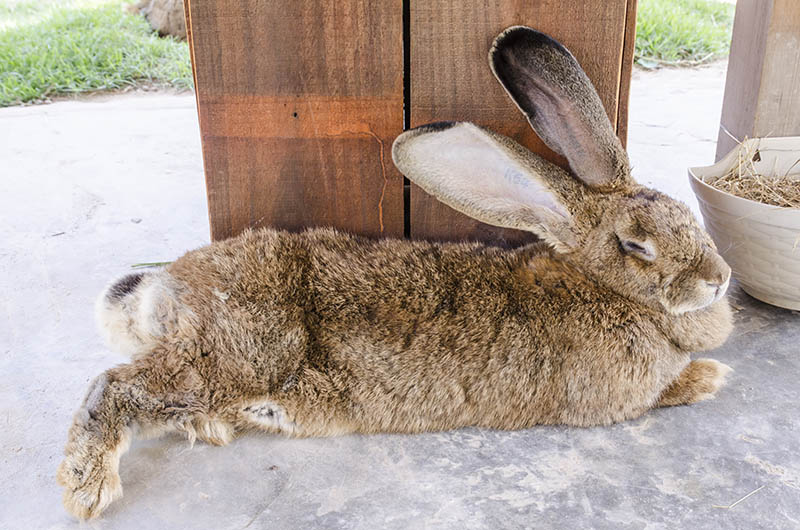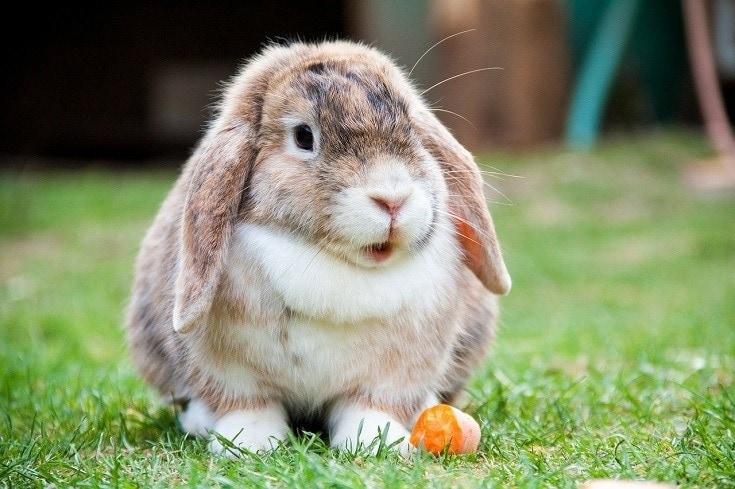Why Does My Rabbit Stare at Me? 8 Likely Reasons
Updated on

Our pets always seem to do the most inexplicable behaviors that have us racing to the internet to look up what it means. And when you notice your rabbit staring at you for long periods, it’s only natural that you’ll come looking for answers.
In this article, we’ll cover the various reasons why your rabbit is staring at you or if they are even staring at you at all!
The 8 Probable Reasons Why Your Rabbit Stares at You
1. They Are Hungry
Just like any pet, your rabbit might be hungry and staring at you because they are essentially begging you with their eyes.
Just wait a bit to check if they actually want food – if they do, they’ll likely start trying to get your attention in other ways. They might approach you and place their paws on your legs, which could potentially turn into nipping if they get impatient.
Provide your rabbit with some hay or a vegetable. If they eat it and seem content, the staring might have very well meant they were hungry.
2. They Are Happy
This could even be a loving stare while your rabbit is feeling relaxed and content. In the wild, bonded rabbits will spend long periods of time gazing at each other, so staring can be construed as a form of affection.
If this is the case, your rabbit might lie down with their legs tucked in while they are gazing at you.
When not lying down, they might also run around you in circles, making a honking sound or flopping over on their side. These are all signs of a happy rabbit showing how much they love and trust you.
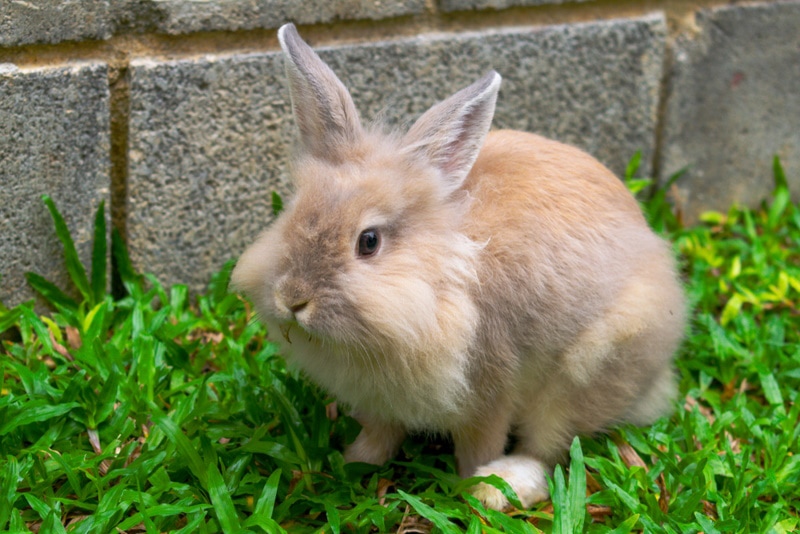
3. They Are Sleeping
Your rabbit might actually be sleeping with their eyes open and not staring at you at all! Rabbits have nictitating membranes,1 which means they have three eyelids.
The membrane is transparent, and because they need to be on alert for predators in the wild, the nictitating membrane allows them to essentially sleep with their eyes open.
This keeps their eyes lubricated, and the brain still receives signals from the eyes, which allows the rabbit to quickly escape if there’s a threat.
4. They Aren’t Sure If You’re a Threat
When you’ve brought a new rabbit into your home, it takes time for them to adjust to their new environment and you. They might be staring at you to determine if you’re a threat or not.
They just need time to adjust, and they will eventually realize you’re not a threat to them. But in the meantime, they will keep a sharp eye on everything.
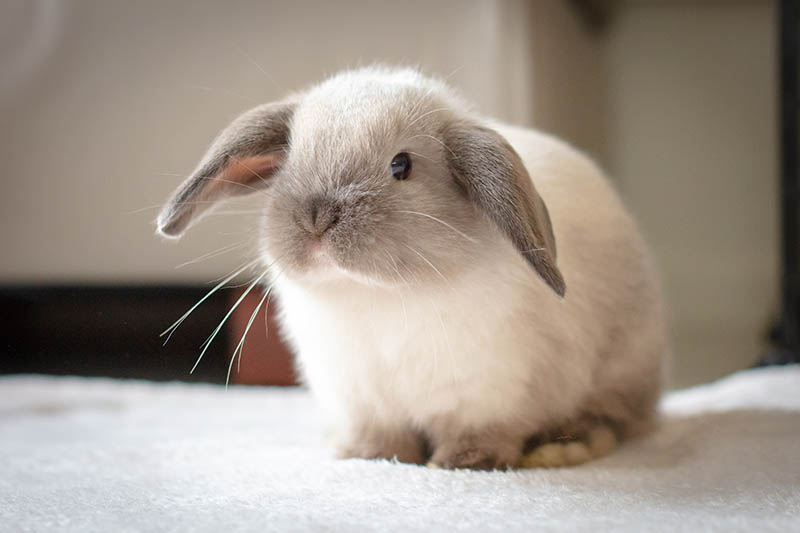
5. They Are Curious
If you’re doing something new to them, your rabbit might just be watching out of curiosity. They are likely staring because they are studying you and want to learn more.
This kind of behavior will probably happen every time you’re doing something different, and your rabbit is keeping an eye on the situation at hand.
6. They Are Sensing Their Surroundings
Rabbits have finely tuned senses and are very sensitive to sounds and smells. They might have heard or smelled something that has confused them and is just trying to figure out their environment and nearby surroundings.
They might be staring at you to see your reaction to the stimuli. Kind of like how you share a look with another person when something unusual happens.
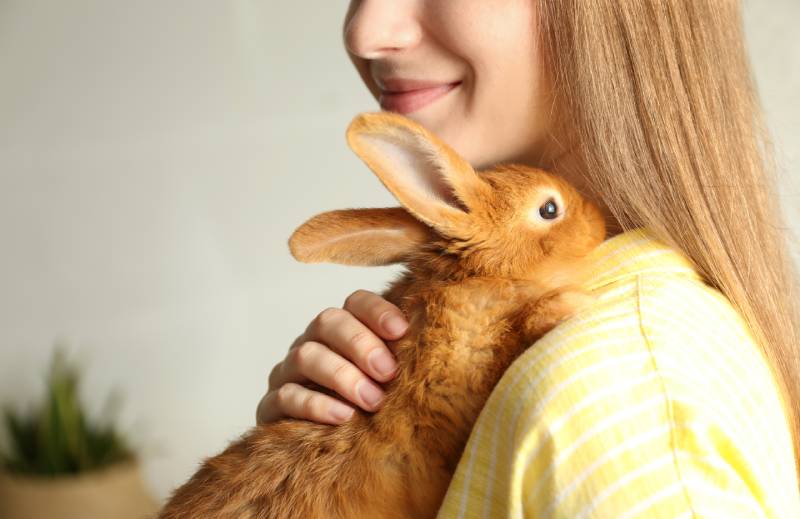
7. They Are Trying to Get Your Attention
This ties into the hunger point, but in this case, they might just want your attention for something other than food. They might want to play or need something, like water.
They might combine staring at you with standing up on their hind legs when seeking something from you.
8. They Aren’t Actually Staring at You
Rabbits are prey animals, which is why their eyes are on the sides of their heads. Because of this, they actually have a blind spot directly in front of their faces.
Rather than staring at you, they are more likely scanning the immediate area for any threats. Having their eyes on the side of their heads allows them to watch a wider area for predators.
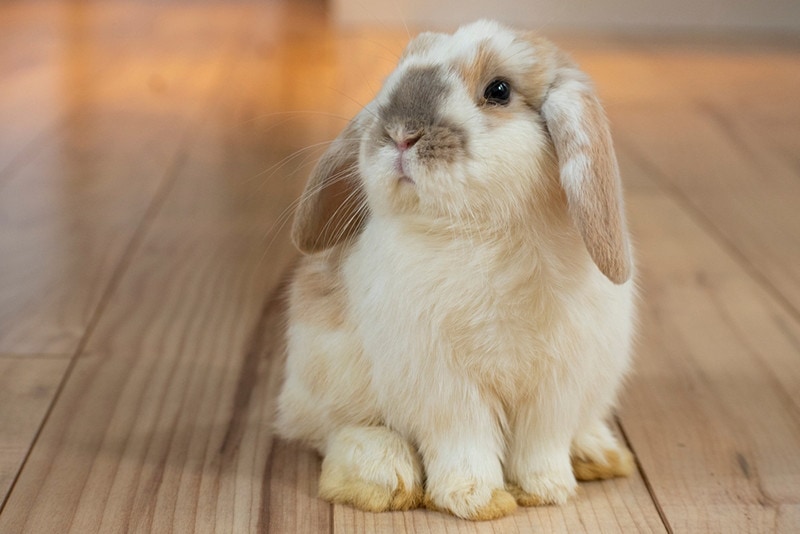
How Do Rabbits Show They Love You?
One clear sign that a rabbit is feeling affectionate is when they groom you. If they spend some time licking you with occasional gentle nips, this is a surefire sign that your rabbit loves and trusts you.
Additionally, when you’re walking, and they run around your feet in circles, this is another sign of love. It certainly makes it challenging to walk while this is going on but consider it a very positive thing.
If they start nudging you, they might be requesting some pets, but this can also be a combination of affection with a little domination behavior.
And binkying is another sign of love and happiness. Binkying is essentially happy hopping, where the rabbit will zoom around quickly, kick their rear legs to the side, and shake their heads.
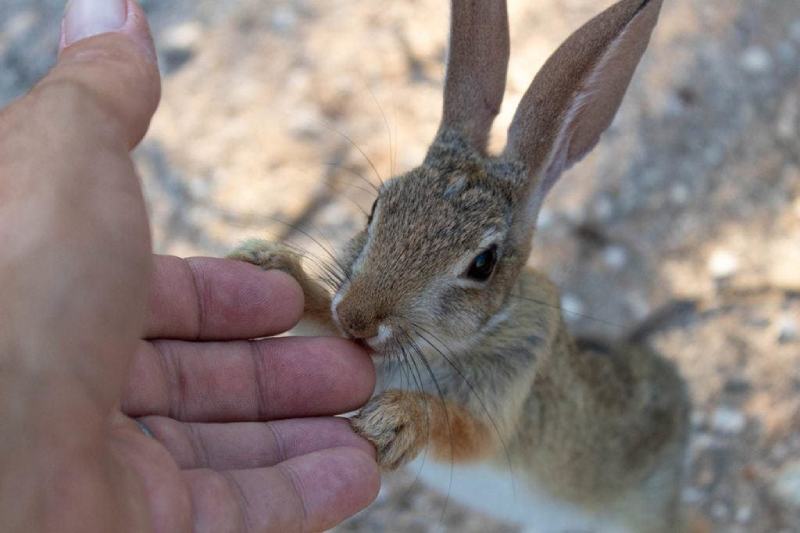
How to Make Your Rabbit Feel Safe
Because rabbits are prey animals, they are always on high alert and easily startled most of the time. You can take some steps to make them feel more comfortable and safer.
No Loud Noises
This isn’t always possible but try your best to keep loud noises to a minimum. Things like yelling children, barking dogs, and a loud TV can stress your rabbit.
Close the windows in the area where they spend time and just otherwise pay attention to how they are reacting to noises in your home.
Enclosure
Your rabbit needs a suitable enclosure with everything they need inside. It should be large enough for some exercise and a few areas that allow them to hide, like a cardboard box.
If they are comfortable inside their enclosure and have their food, water, and toys, and it’s kept in a quieter area, this can give your rabbit extra confidence.

Give Them Time
Rabbits need time to adjust to a new environment. Allow them to come to you when they are comfortable, and don’t force playtime or any kind of interaction if they aren’t ready for it. Just be patient, and they will warm up to you in no time.
Routine
Rabbits are not fans of the unexpected. Keeping things the same and on a schedule will give them a routine, which will make them less stressed.
So, keep mealtimes as well as exercise on a schedule, which should help your rabbit with their confidence.
Toys
Rabbits need toys to keep them physically and mentally occupied. Without entertainment, rabbits will become bored, depressed, and stressed and start destructive behaviors, such as chewing.
Find appropriate toys for rabbits that will allow them to burn energy and follow their natural instincts.
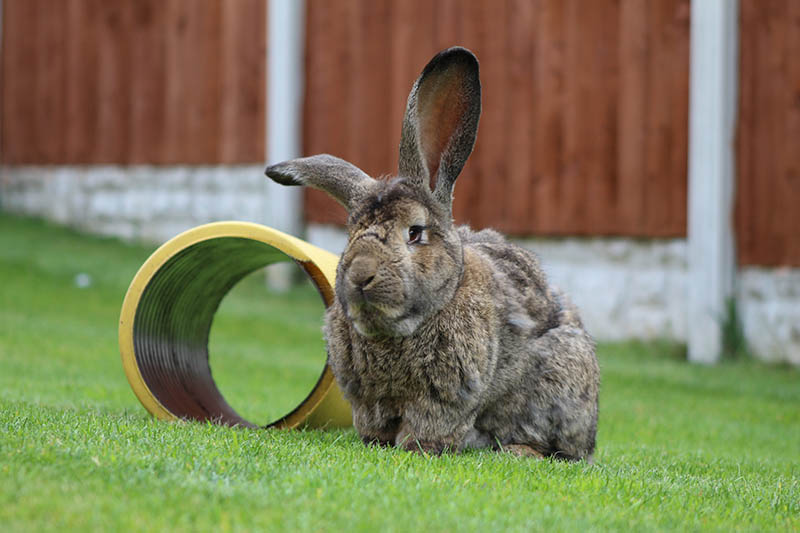
Give Them Attention
When your rabbit has become familiar with and trusts you, you need to spend time with them. You can try teaching them some tricks (litter training should be high on your list) or just hang out with them for some bonding time.
Do this as much as possible – rabbits are social creatures who will gain confidence with your attention.
Conclusion
There are all kinds of reasons why your rabbit is staring at you. Much of the time, they want your attention, and it’s likely for food. But they are also possibly curious, or sometimes they are just sleeping.
Either way, become familiar with their body language. If they seem relaxed, you know it’s nothing to worry about, but if they appear on high alert, they might be listening for potential threats.
Just as long as you use some of the above tips for keeping your rabbit as stress-free as possible, they should become relaxed and calm in your presence and at home.
Related Read:
Featured Image Credit: New Africa, Shutterstock

